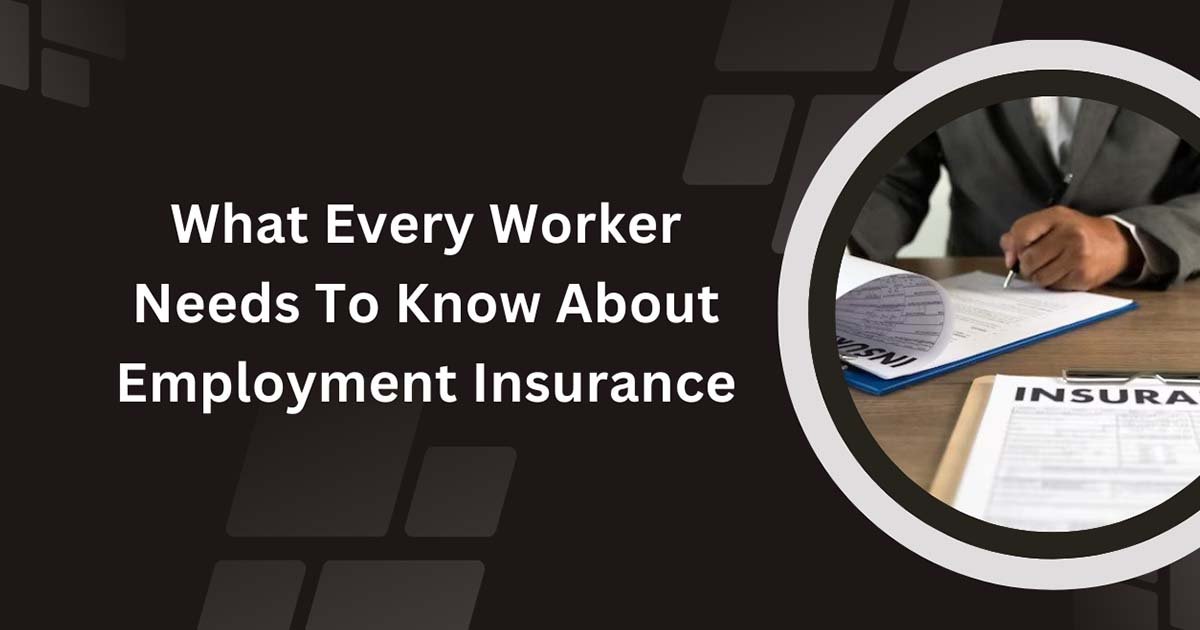Employment Insurance : In today’s uncertain job market, it’s really important for all workers to understand something called Employment Insurance, or EI for short. Whether you’ve been working for a long time or are just starting your job journey, What Every Worker Needs To Know About Employment Insurance is like a safety net that helps you with money when you don’t have a job.
What Is Employment Insurance (EI)?
Employment Insurance, which people call Employment Insurance, is a program in Canada that helps you with money if you lose your job. It’s like a financial cushion that helps you pay for things when you’re looking for a new job. The government runs this program, and the money for it comes from both workers and their employers.
Who Can Get EI Benefits?
To get EI money, you have to meet some rules:
- You need to have worked a certain amount in the last year.
- You have to lose your job for reasons that aren’t your fault, like the company closing.
- You should be ready and willing to work while getting Employment Insurance money.
- You need to have a good reason for not working, like being sick, having a baby, or looking after a new baby or adopted child.
How Does EI Work?

EI is like a money cushion for people without jobs. When you lose your job and meet the rules, you can ask for Employment Insurance money. They usually pay you every two weeks, and it’s meant to replace some of the money you used to get from your job.
Different Types Of EI Benefits
Regular Benefits
These are for people who lost their jobs because of things they can’t control. It helps with money while they look for a new job.
Special Benefits
These are for special situations like when you’re having a baby, taking care of a sick family member, or you’re sick yourself.
How To Apply For EI
Applying for EI is not too hard. You can do it online on the Service Canada website or go to a Service Canada office. Before you apply, make sure you have all the papers and information you need.
Waiting Period And What To Do During It
After you ask for Employment Insurance, there’s a short time when you won’t get any money. It’s called the waiting period. During this time, you should keep looking for a new job. The waiting period is usually one week.
How They Figure Out How Much Money You Get

The amount of Employment Insurance money you get depends on how much money you used to make and how many people are looking for work in your area. They use a special math formula to figure it out. Remember, the EI money you get is counted as income on your taxes.
Telling Them About Your Job Search
When you’re getting EI money, you have to tell Service Canada about your job search. You need to keep good records of the jobs you apply for. If you don’t, it might take longer to get your EI money.
Mistakes To Watch Out For
To make sure you get your EI money smoothly, avoid making mistakes like not telling them about money you earn, missing deadlines, or not trying hard to find a new job.
Understanding Losing Your Job
It’s important to know why you lost your job because it can affect if you can get EI money. If you quit your job on your own or were fired for doing something wrong, you might not get Employment Insurance money.
When You Disagree With EI Decisions
If Service Canada says you can’t get EI or you disagree with their decision, you can ask them to look at it again. There’s a process for this, so make sure you follow the rules.
Working Again While On EI

If you find a new job while you’re still getting EI money, you have to tell Service Canada about it. They might change how much EI money they give you based on your new income.
Taxes And EI Benefits
Remember that the money you get from Employment Insurance counts as income on your taxes. You might have to give some of it back when you file your taxes.
Where To Get More Help
If you have questions or need help with Employment Insurance, Service Canada can help you out. They have resources and support to guide you through the system.
Also Read : What’s The Best Care Health Insurance Plan For Your Family?
Conclusion
In a nutshell, Employment Insurance is a safety net that helps Canadian workers when they don’t have a job. Understanding how it works and following the rules can make a big difference during tough times.
1.How long can I get EI money for?
The time you can get EI money varies, but it’s usually up to 45 weeks, depending on where you live and how much you worked.
2.Can I work part-time while getting EI money?
Yes, you can work part-time and still get EI money, but they might adjust how much you get based on your earnings. Just make sure to report your income correctly.
3.Can self-employed people get EI money?
Normally, self-employed people can’t get regular EI money, but they might be eligible for special benefits like maternity or parental leave.
4.What happens if I forget to report my job search activities?
Not reporting your job search activities can cause delays in getting your EI money. It’s important to keep good records and report regularly.
5.How can I appeal an EI decision I don’t agree with?
If you disagree with a decision, you can appeal it. Service Canada will tell you what to do, so make sure to follow their instructions.
Source Image : Freepik.com





